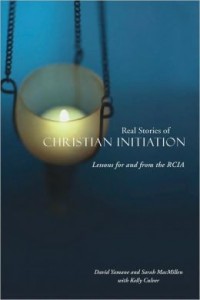 You can find an excellent reflection on an article I wrote about parish-level evangelization at Practical.Catholic.Evangelization. Colleen’s key insight is that intra-church politics serve to distract us from what is most important about Church. Here is how she puts it,
You can find an excellent reflection on an article I wrote about parish-level evangelization at Practical.Catholic.Evangelization. Colleen’s key insight is that intra-church politics serve to distract us from what is most important about Church. Here is how she puts it,
“Though Starks’ article might seem like just a sociologist’s study. It’s not. He provides a powerful, essential reminder of what we must guard against in parish life–resisting the distracting temptation to become just another charitable organization or social club, and instead seeking authentic relationship with Jesus and others in all we do.”
Here is how one of my informants/interviewees put it in recognizing this problem:
I want to help people develop a relationship with God. I want people to have a relationship with God, I want them to be able to read the bible, and understand it in terms of catholic interpretation, and I want them to be able to celebrate the sacraments in a way that nourishes them. Those are things that are important to me as a minister. I think one of the challenges here, because of this parish and because of the style of preaching and because of the people who are drawn here; we can get sidetracked from those three things. We get sidetracked, like should women be ordained, and should gay marriage be sanctioned, and why is the bishop telling us what to do and we get really distracted by intra-church politics. That became really clear to me, not this confirmation but the year before, when at the end of year I had them write letters to the bishop asking to confirm them. And what they wrote about was that they didn’t believe everything the church teaches but live with it. They didn’t write anything about prayer, or God, or a relationship with Jesus, or a call to serve the poor, I said that most of the time what we talked about was what the church teaches about this issue and agree or do not agree, its ok if you don’t agree, and the same thing happens with RCIA, the people are so aware of the stuff the Catholic church preaches that they don’t agree [with], so we say that the catholic church is bigger than that and we don’t spend enough time talking about your personal relationship with God and scriptural liturgy…In terms of how I prepare my program, those are things I want, a personal relationship with God, being able to open up the bible and be able to worship with our staff members. (bold emphasis mine)

 Bob Butz passed away Feb. 5, 2014 at the age of 92.
Bob Butz passed away Feb. 5, 2014 at the age of 92.

